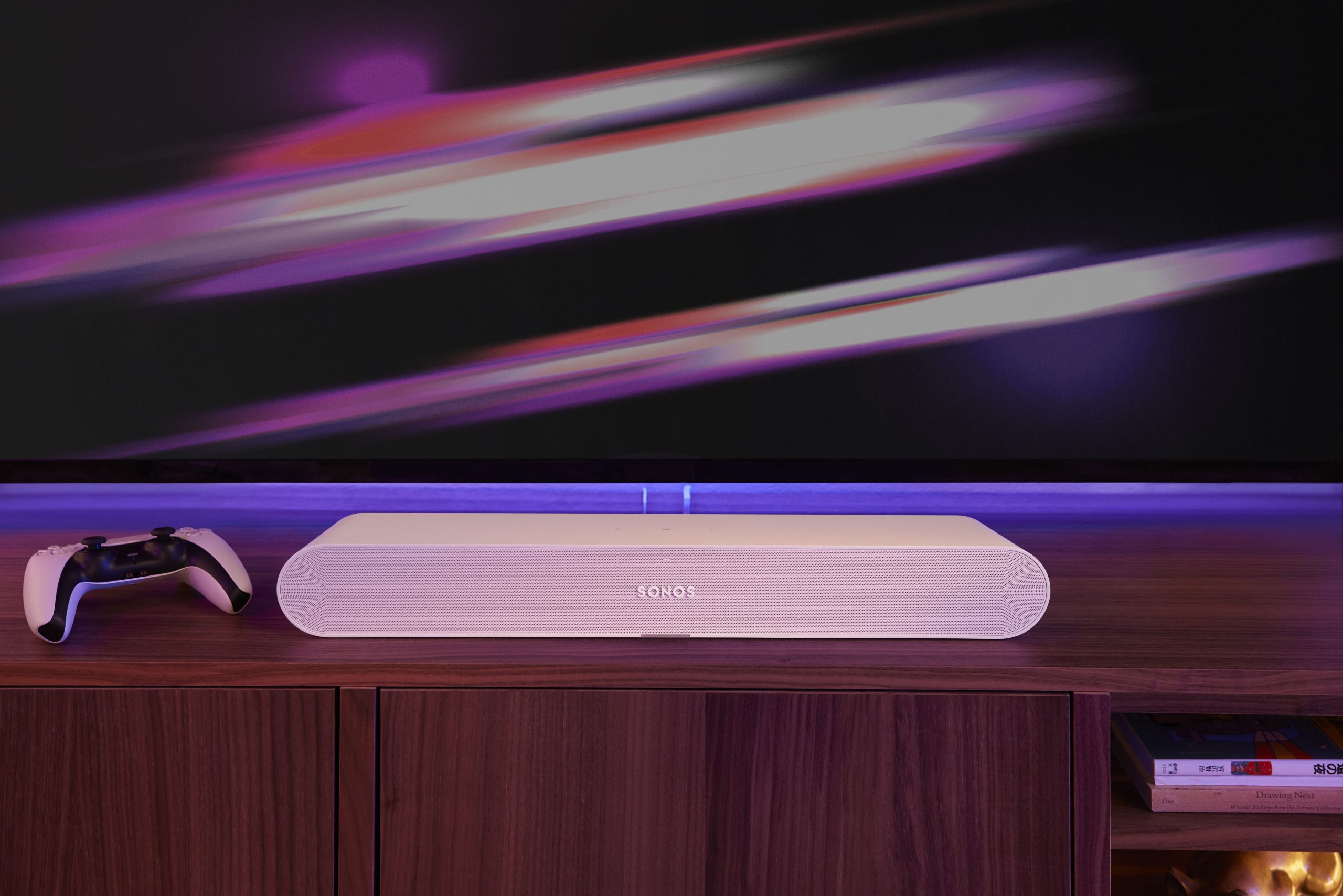Sonos has long been heralded as the whole-home audio company that places sound fidelity, design, and material quality above the need for affordability. But given the market share it’s losing to competitors like Google and Amazon on the smart speaker front, and Vizio, Samsung, TCL, and Sony on the soundbar front, it’s attempting to find an appropriate price-to-performance compromise with its latest announcement.
The Sonos Ray is a relatively compact and uncomplicated soundbar that, at just $279, is considerably cheaper than the $449 Beam (Gen 2) and $899 Arc. Both of those soundbars, while miles apart in terms of audio capabilities, support Dolby Atmos through the HDMI eARC standard, and come with built-in microphones to support Google Assistant and Amazon Alexa. The Ray, on the other hand, relies on the aging optical audio standard (also known as TOSLINK) and forgoes microphones entirely, making this about as simple a proposition as it gets: Sonos wants this to replace the often-terrible speakers built into most budget TVs.
The Ray comes with two tweeters and two midwoofers, all of which are forward-facing to ensure that the speaker sounds good from almost any position, enhanced by the company’s popular TruePlay algorithm, which uses a phone’s microphone to map out a room’s audio signature and adjust the speaker’s EQ accordingly. (It should be noted that TruePlay is only supported on iOS devices, which is a tremendous bummer for this site’s audience.)
Of course, one of the Ray’s biggest assets, aside from its price, is that it’s a Sonos speaker, which means that aside from capturing TV audio, it can intercept any wireless audio stream coming from the Sonos app, including most popular streaming music services . The Ray will be available on June 7th in all countries the company sells. In conjunction with the announcement today, the company is launching a new channel on its Sonos Radio section curated by singer Lorde, called SOLARSYSTM. There are also three new colors for its portable Roam speaker: Olive, Wave and Sunset.
Perhaps the biggest and most interesting announcement from Sonos, though, is not a piece of hardware, but the company’s attempt at dislodging Google’s and Amazon’s hold on the smart speaker market. Called Sonos Voice Assistant and launching as a free update in early June to Sonos users in the US, with support for France (and French, presumably) later in the year. Sonos promises that the voice assistant has “unmatched privacy” and is only focused on making it easier to get to music and other audio quickly, with “limit[ed] responses and chimes” and the ability to continue questioning without having to repeat “Hey Sonos” every time, similar to Google’s Continuing Conversations feature.
The voice assistant is limited to calling on Sonos Radio, Amazon Music, Apple Music, Deezer, and Pandora at launch, but basic functions like play, pause, skip track, and volume controls will work with any service once the music is playing. The best part? It is voiced by Breaking Bad’s Giancarlo Esposito, who has one of the smoothest pipes in the business.
You can pre-order the Sonos Ray today, and it ships June 7.
See at Sonos
Read Next
About The Author

